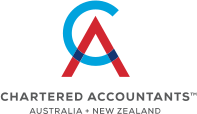Adelaide Accountant Kym Nitschke reviews exactly which aspects of your self-education you can claim when reporting taxes.
The importance of education is unquestionable. Your level of education will determine many aspects of your life including lifestyle choices and ultimately how much income you will earn in your lifetime. So it only makes sense for us to continue learning and to improve our education to better ourselves. In other words, your education is an investment.
Undertaking study comes to an expense, so it’s necessary to know that in some cases you may reduce your tax by claiming for some of your self-education expenses.
What Are Self-Educated Expenses?
According to the Australian Tax Office (ATO), ‘self-education’ is defined as courses undertaken at an educational institution, attendance at work-related seminars or conferences, or self-paced learning and study tours (overseas or within Australia).
In other words, the expenses you incur as a result of undertaking such study can be claimed as a tax deduction, possibly saving you a large amount of cash!
To be able to claim for the expenses, the self-education must relate directly to your current field of work, for example completing a training course that you know will lead, or be likely to lead, to an increase in your employment income or improvement or upkeep of skill will be a deductible claim.
However, if you’re completing a training course and the course does not relate to your current employment, or you’re using it to start your own business, the self-education expense will not be tax-deductible.
What Can You Claim?
In some circumstances you can claim the following expenses in relation to your self-education:
- Accommodation and meals (if away from home overnight)
- Computer consumables
- Course fees
- Decline in value for depreciating assets (cost exceeds $300)
- Purchase of equipment or technical instruments costing $300 or less
- Equipment repairs
- Fares
- Home office running costs
- Interest
- Internet usage (excluding connection fees)
- Parking fees (only for work-related claims)
- Phone calls
- Postage
- Stationary
- Student union fees
- Student services and amenities fees
- Textbooks
- Trade, professional, or academic journals
- Travel to-and-from place of education (only for work-related claims)
Some travel for journeys cannot be claimed, but you may be able to offset the cost of these journeys against the $250 reduction.
What You Cannot Claim
You cannot claim the following expenses in relation to your self-education:
- Repayments of Higher Education Loan Program (HELP) loans (although the fees paid by some HELP loans are)
- Student Financial Supplement Scheme (SFSS) repayments
- Home office occupancy expenses
- Meals (if you’re not sleeping away from home)
Examples
Example #1:
Ned is completing a MBA programme to start his own business – he is not eligible to claim for any self-education deductions.
Example #2:
Sarah is a Nurse, who’s training and education needs to be constantly updated. In the financial year, Sarah undertook a Nursing online course, had to attend a mandatory Nurse workshop in Sydney (flight and accommodations expenses incurred) and purchased a new personal computer necessary for online study.
Sarah may claim the expenses she incurred for the online course and Sydney trip as self-education expenses, however she cannot claim the computer because of its personal purpose.
Example #3:
Jack is hoping to up-skill himself for the benefit of his role. He will complete his MBA programme at the end of the financial year. At tax time, Jack can claim on all deductible expenses within this financial year.
Need some help figuring out what category your situation falls into?
Let Nitschke Nancarrow guide you. Give our Adelaide team a call on (08) 8379 9950 or send me an email.
– Kym Nitschke














